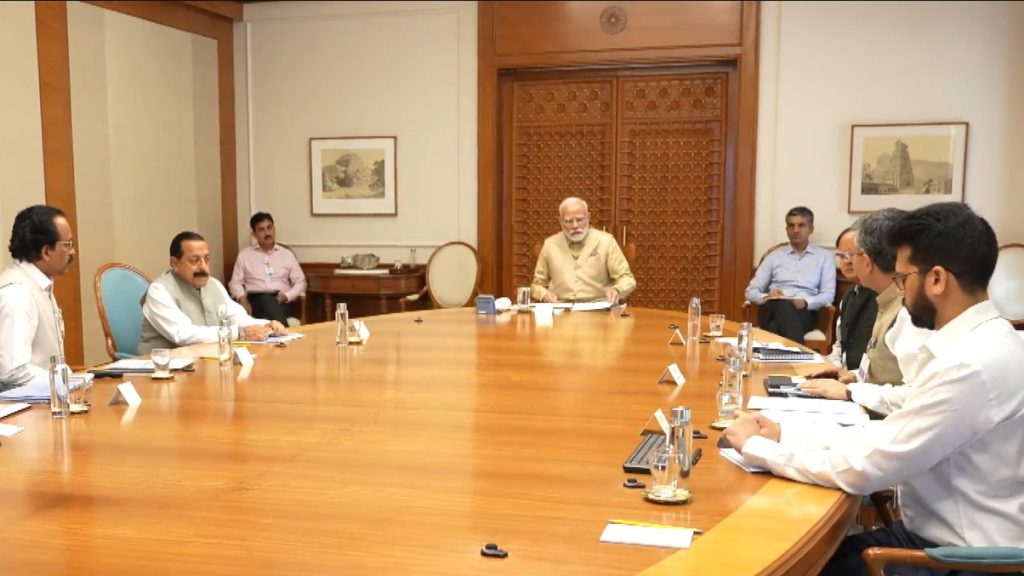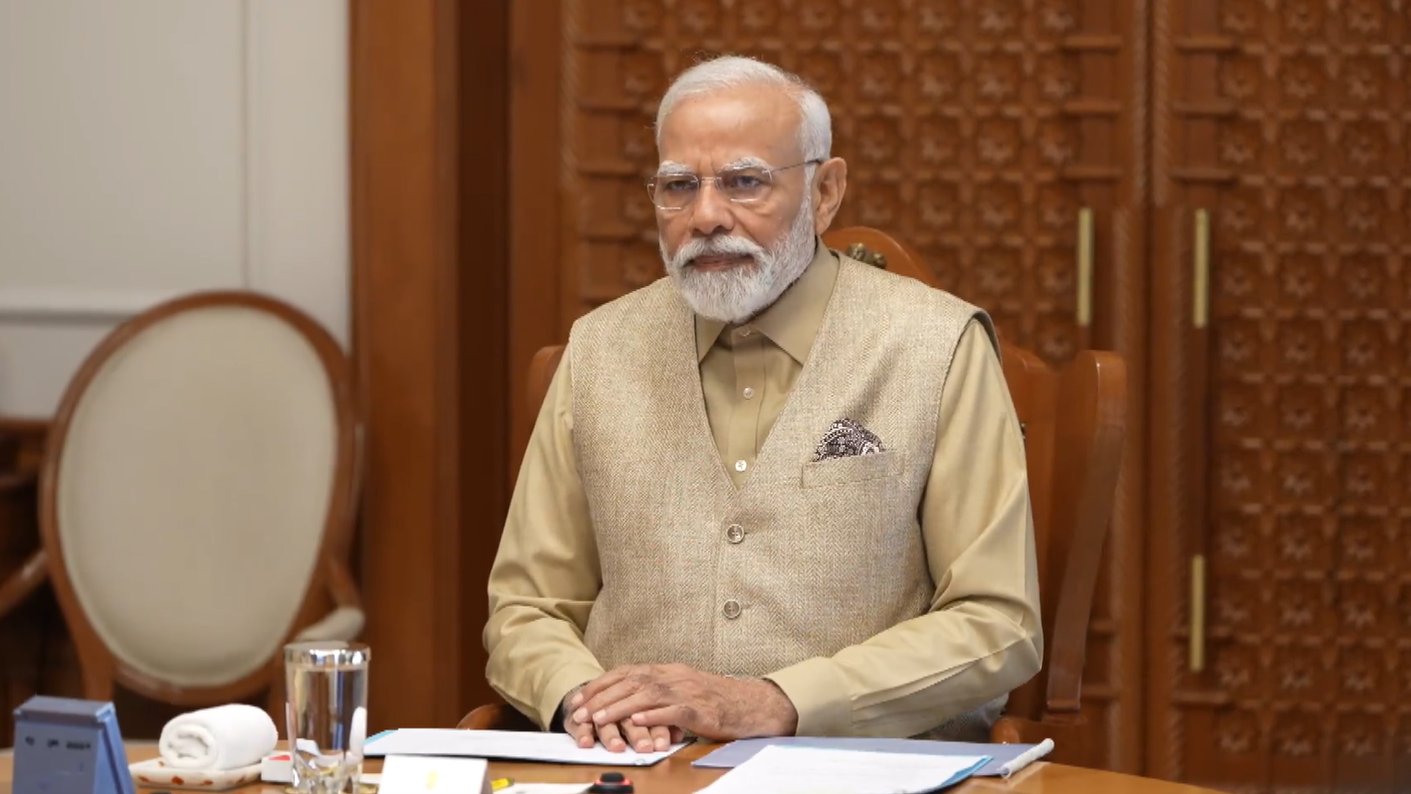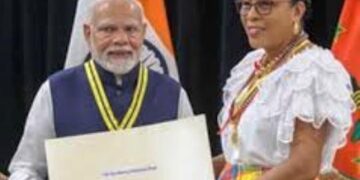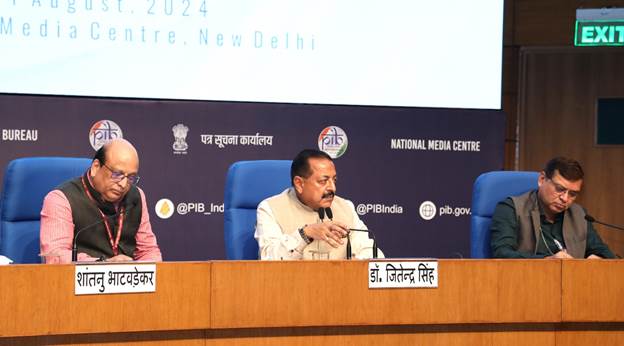New Delhi: Prime Minister Narendra Modi chaired a high-level meeting to assess the progress of India’s Gaganyaan Mission and to outline the future of India’s space exploration endeavors.
The Department of Space presented a comprehensive overview of the Gaganyaan Mission, including various technologies developed, such as human-rated launch vehicles and system qualification.

It was noted that around 20 significant tests are planned, including three uncrewed missions of the Human Rated Launch Vehicle (HLVM3). The first demonstration flight of the Crew Escape System Test Vehicle is scheduled for 21 October. The meeting evaluated the mission’s readiness, affirming its launch in 2025.
Building on the success of the Indian space initiatives, including the recent Chandrayan-3 and Aditya L1 Missions, the Prime Minister directed that India should now aim for new and ambitious goals, including setting up ‘Bharatiya Antariksha Station’ (Indian Space Station) by 2035 and sending first Indian to the Moon by 2040.
The Department of Space will develop a roadmap for Moon exploration to realize this Vision. This will encompass a series of Chandrayaan missions, designing a Next Generation Launch Vehicle (NGLV), constructing a new launch pad, and setting up human-centric Laboratories and associated technologies.
Prime Minister also called upon Indian scientists to work towards interplanetary missions, including a Venus Orbiter Mission and a Mars Lander.
Prime Minister Modi expressed confidence in India’s capabilities and affirmed the nation’s commitment to scaling new heights in space exploration.


















